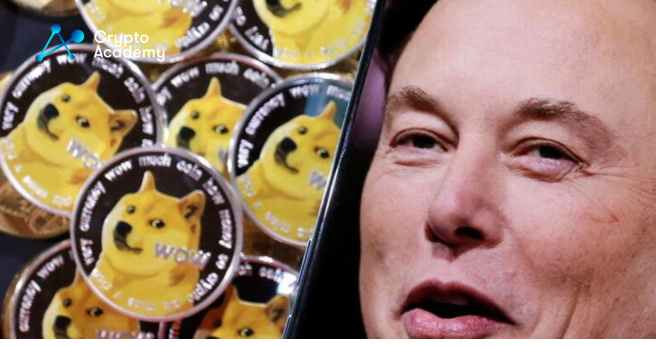Elon Musk’s Lawyers Move to Dismiss “Frivolous” Dogecoin Fraud Case

Attorneys representing Tesla CEO Elon Musk are seeking the dismissal of a multi-billion dollar case that accuses the prominent entrepreneur of insider trading involving Dogecoin (DOGE) with his online followers. The legal team is asserting that the accusations lack substance and should be dismissed with prejudice, preventing the plaintiffs from burdening the judicial system with further claims based on Musk’s Twitter activity.
Elon Musk’s lawyer, Alex Shapiro, filed a letter in a New York federal court outlining the defense’s stance on the lawsuit. Shapiro denounced the claims made by disgruntled investors as “baseless” and “frivolous,” emphasizing that the lawsuit is grounded in nothing more than Musk’s often lighthearted tweets about DOGE. The defense argued that there is no legal issue with expressing support for or sharing humorous content about a cryptocurrency with a substantial market capitalization, currently exceeding $11 billion.
Evolution of the Lawsuit
The plaintiffs initially filed their complaint in June 2022, seeking a staggering $258 billion from Musk to compensate for investor losses purportedly caused by his promotion of DOGE in early 2021. Subsequently, the lawsuit underwent three amendments, with lead attorney Evan Spencer introducing insider trading and market manipulation allegations by June 2023.
In their most recent filing, the plaintiffs identified specific wallets allegedly associated with Musk’s DOGE trading, citing these transactions as influencers on the cryptocurrency’s price via Musk’s tweets. However, Musk’s legal team countered by highlighting the absence of conclusive evidence linking the identified wallets to the CEO.
The Defense’s Argument
Musk’s lawyers contended that the plaintiffs failed to establish a claim that Musk’s enthusiastic tweets about Dogecoin were materially false or misleading, nor did they demonstrate that Musk and his associates acted with any illicit intent. The defense referred to Musk’s tweets as “quintessential inactionable puffery,” a legal term denoting vague statements that are not reasonably ascribable to specific intent or meaning.
The defense and plaintiffs agreed that Dogecoin represents a speculative investment, characterized by its high volatility. However, the defense underscored that this information is widely known and public, with even Dogecoin’s founder, Billy Markus, acknowledging the speculative nature of the cryptocurrency.
A Case without Substance
Evan Spencer, the lead attorney for the plaintiffs, alleged insider trading on Musk’s part, claiming that his private intentions regarding DOGE-related tweets constituted non-public information. The defense swiftly rejected this assertion, asserting that Musk’s personal thoughts did not qualify as material non-public information regarding Dogecoin.
In a comprehensive argument, Musk’s legal team concluded that the plaintiffs’ allegations had consistently fallen short of establishing a valid cause of action throughout the course of the case’s progression. As the legal battle continues to unfold, the fate of the lawsuit hinges on the court’s decision on whether the allegations hold weight or whether they are indeed the “frivolous” claims that Musk’s defense team has vehemently contested.

Comments are closed.